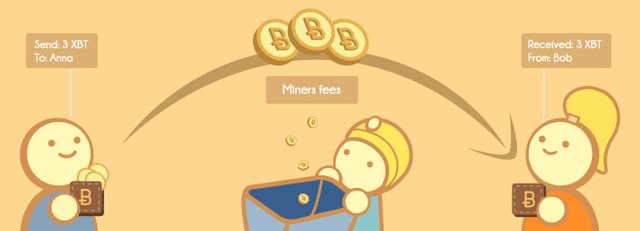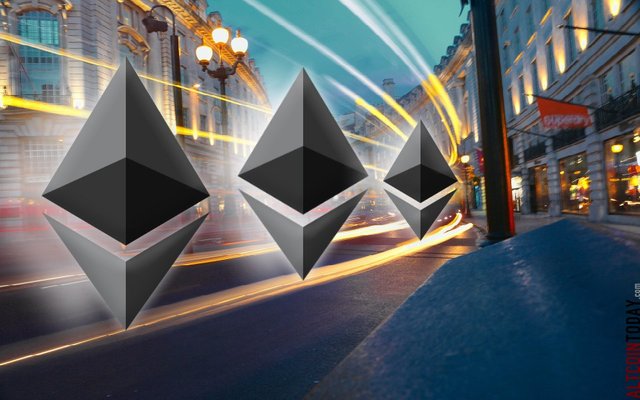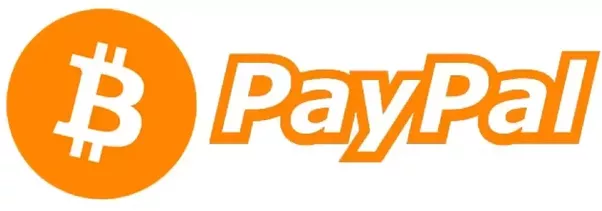Cryptocurrencies vs. PayPal - Battle For The Future Of Payments
Digital currencies are fast replacing traditional means of payments like the PayPal. While the method these modes of payment offer are the best in recent years, transacting in digital currencies, cryptocurrencies to be precise has been an eye-opener for many, making other means of transaction archaic when compared with cryptocurrencies.
There have been complaints about how frustrating PayPal services has been to different users, and how they have been denied their hard-earned funds for months, putting individuals and corporate organizations in massive debts. Clients at times don't understand these processes, and all they want is a refund or the product/service they purchased.
Though the CEO of PayPal, John Donahoe, has mentioned in a statement that PayPal plans to integrate digital wallets with the PayPal system in future, more are more people are turning towards cryptocurrencies.
Though digital currencies have their drawbacks as people tend to send funds into wrong accounts most times as a result of the confusing state of wallet addresses, they are probably the payment method of the future.
The Fees

PayPal is a centralized system and therefore has a body of members who decide how much users pay on every transaction. This fees sometimes are very high when being compared to digital currencies. You'll be forced to pay up to 5-7% of what you are transferring. Cryptocurrencies, on the other hand, are decentralized means of making financial transactions. This means there is no particular body which sets transaction fees on blockchains which cryptocurrencies function on. The little lees charged by the network is paid to miners as rewards for validating the transaction. Hence, this low fees when transacting in cryptocurrencies has made the use of cryptocurrencies top choice against PayPal.
Let's take a bit to compare the fees. We'll start with the most known cryptocurrency - Bitcoin. A few days ago, Bitcoin fees reached a 6 months low due to segwit adoption. In the future, the lighting network is expected which will reduce the fees drastically. Ethereum have an average transaction fee of $0.79 USD and a median transaction fee of $0.27 - according to BitInfoCharts. This is another great option - as the trasnsaction is confirmed in a minute or even less. A cheaper way is to use Litecoin. Litecoin is known for having one of the lowest fees from all the cryptocurrencies as well as being a cryptocurrency with an active community since 2013. Litecoin average fee is $0.35 and the median transaction fee is $0.058. And there's the possibility to transfer with a zero fee too - by using NanoSpeed of Payment

Regarding speed, though both transactions are instant, anything can go wrong with that of PayPal that could make the funds unuseable for up to 180 days. The financial institution connected to the PayPal account can also be a massive hindrance in making prompt payments whereas, with cryptocurrencies transaction fees can also be facilitated by increasing fees paid to make the transaction, and it still will be way cheaper than PayPal charges. Nevertheless, there were instances where cryptocurrencies, like Bitcoin, took so long to send, this most times is as a result of low transaction fees set by the wallet. It is always a good practice to check up current transaction fees on your cryptocurrency's block explorer before initiating any transaction. And because there is a wide range of cryptocurrencies to choose from, there are others like Litecoin, Ethereum, Monero, Nano, etc. which are great coins and widely accepted that you can make use of for online transactions.
There are a few other issues that cryptocurrencies have. For example, if you send funds to the wrong address - you may never recover them back. So you need to be extra careful about it. Another thing that can happened is to mistake Bitcoin and Bitcoin Cash - this has happened before.This is not an issue from the technological point of view, but a problem that new users may experience. But as people learned to use smartphones, people can learn to use cryptocurrencies.
Security

PayPal has proven not to be the best way of accepting payments over the internet in recent times as there have been issues of chargebacks which are forms of delays that cause PayPal to intervene in such situations. Sometimes, resolution of such matters is in favor of the wrong party. Moreover, PayPal accounts are easily hackable. A hacker may use tons of methods to access a PayPal account.
But with cryptocurrencies, there are hardly roll back of funds, and funds transferred cannot be called back. Once the transaction is initiated and added to the blockchain, that's final. The buyer and seller could be at ease as funds will be credited to the account it's been sent to in minutes. Hacking a protected account is way more difficult that a PayPal one. A Bitcoin address saved on a paper wallet is almost unbreakable and is know to be the safest way to keep your Bitcoins secured. There are also options for other cryptocurrencies - such as web wallets with 2FA or hardware wallets such as Trezor or Ledger.
Cross-Border Payments

Regarding cross-border payment solution, PayPal is restricted in some countries or entirely not available to citizens there; this makes using PayPal to receive or send payments internationally is not the best option. Cryptocurrencies, on the other hand, is no respecter of geo-location. You can send payments to and receive payments from anyone anywhere in the world. There are some countries where cryptocurrencies aren't allowed, but people still find a way to use them.
User Experience

Regarding user-friendliness part, PayPal undoubtedly is easy to use, and a newbie should pretty much know what to do regarding sending and receiving transactions. Cryptocurrencies wallet interfaces are as such easy. Depending on platform developers, there are multiple cryptocurrency wallets for various coins, given you options to choose what interface you find much easier to use. Aside from having your digital currencies stored on wallets, you have more controls over; you can also make use of cryptocurrency exchanges. These companies also make improvements to their platforms, from time to time, to make the platform easy to use for their users.
In conclusion, we do not know what technological advancements the future holds for financial transactions shortly, but as much as we know, current technologies are beating older and trusted methods of transacting financially to their game. PayPal is an established giant in the payments industry - but cryptocurrencies are gaining more field daily. Even though cryptocurrencies are not that easy to use by a non-technical person - people will surely adapt to it as they did with credit cards and online transactions.
Coins mentioned in post: